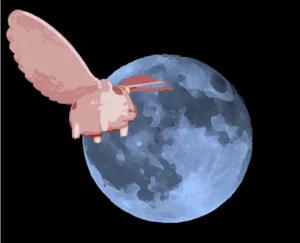
Thinking through incredible scenarios can be productive if you’re writing a fiction story. But, surely it won’t help you predict future events? Or, will it?
Research has shown that thinking about outcomes you believe to be unlikely, yet possible can help you anticipate things to come.
When we try to predict future events, like the final score in a sports game, the outcome of an election, or how our child will do on a spelling test we tend to spend most of our time thinking about a single outcome. And, the more we think about this outcome, the more likely we are to believe that this is what will happen.
This may be one of the reasons most of us come up short when it comes to psychic abilities. It’s why we need to temper our intuitions with a decent dose of critical thinking.
Edward Hirt and Keith Markman of the Indiana University at Bloomington looked at ways to help people make predictions that are less biased towards their favorite outcome. Their paper, “Multiple Explanation: A Consider-an-Alternative Strategy for Debiasing Judgments” was published in the Journal of Personality and Social Psychology.
In a clever study, these researchers had students attempt to predict the outcome of a sports game. Before making their predictions the students were asked to use different thinking strategies by writing down explanations why certain outcomes might occur.
Some students were only asked to explain a single outcome (a convincing win by team A).
Others had to explain the single outcome plus an alternative. The alternative could either be a variation on the first outcome (team A wins, but it’s a close game), the opposite of the first outcome (team B wins by a small margin), or an implausible outcome (team B knocks it out of the park).
The students who only explained a single outcome were overly confident in that outcome.
Those who explained two possibilities were less biased towards any single outcome. This was true even if the alternative outcome they had explained was only a variation on the first (the less convincing win by team A).
But, if the alternative was one they did not think was remotely plausible, then the students became even more confident in the first outcome. The strategy backfired when the students had to stretch their thinking too far.
Hirt and Markman believe the mere activity of explaining an alternative outcome usually leads us to realize that the outcome isn’t as predictable as we first thought. This gives us a way to better anticipate possibilities that we would never have considered otherwise.
Thinking through alternative possibilities can help unravel unhealthy attachments we may have to particular outcomes. That helps us better anticipate the future, as well as to control our impulses.

Thanks for the article. Very interesting content. It seems the link to the article by Edward Hirt and Keith Markman is broken. I was able to find the article here: https://www.academia.edu/5465305/Multiple_Explanation_A_Consider-an-Alternative_Strategy_for_Debiasing_Judgments
I think this article speaks to one challenge we have in the software development profession. Many teams fixate on the one path to get software created, exactly as we envision it, and by a particular date, with a fixed budget of time. Due the the complexity of software creation, any number of assumptions will be invalidated, now matter how much planning we do. This article seems to be indicating that as long as we think through _plausible_ alternatives, we will tend to be less attached to our favored outcome. But, if the alternatives we think through are _not_ plausible, people fixate even more on the preferred outcome. Did I understand that right?
Thanks for all the interesting posts.
Thank you for finding a better link to the article Dan! And yes, that’s right. Hirt and Markman found that the less plausible participants thought it was that the alternative team they were explaining would finish in first place, the higher their predictions of their favorite team coming in first. That is, the more unlikely the alternative, the more biased they were in their predictions.
The implication seems to be that more competing ideas you successfully dismiss, the more confident you become in your first idea. If you think of it that way, thinking through alternatives that appear unlikely can seem counterproductive. But, I think that in practice the activity of examining an alternative idea and determining whether or not aspects of it are plausible can be valuable. It has the potential to help you discover completely different alternatives. And maybe those alternatives ‘fly’.